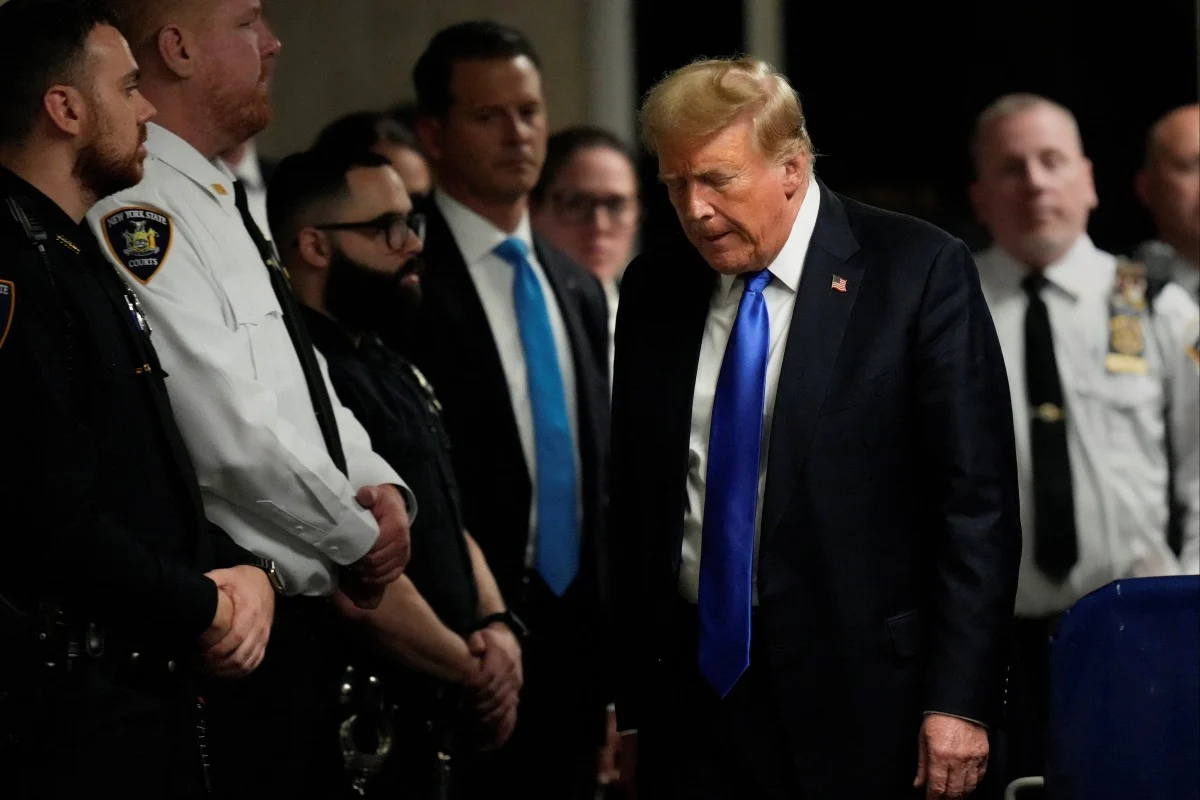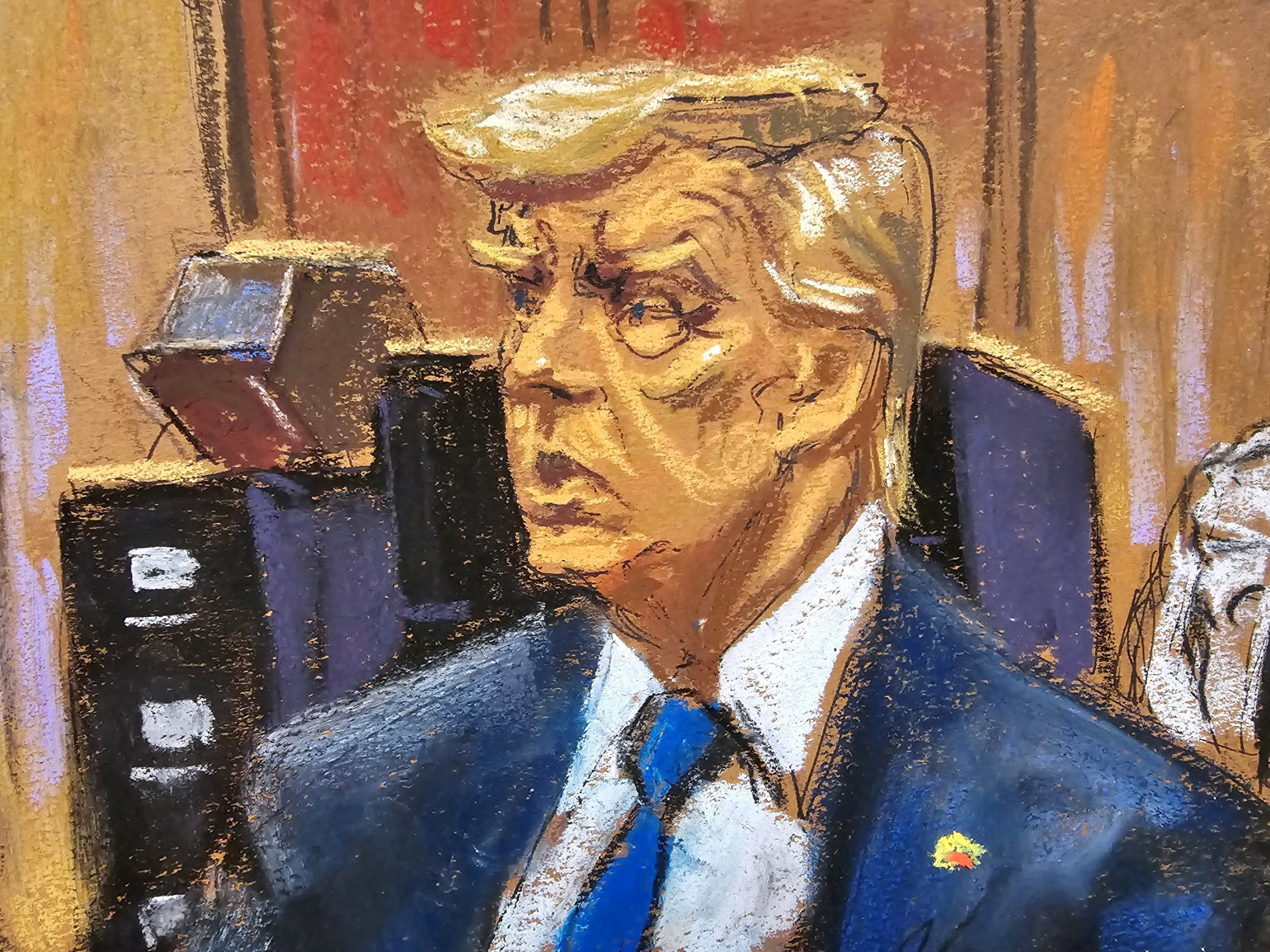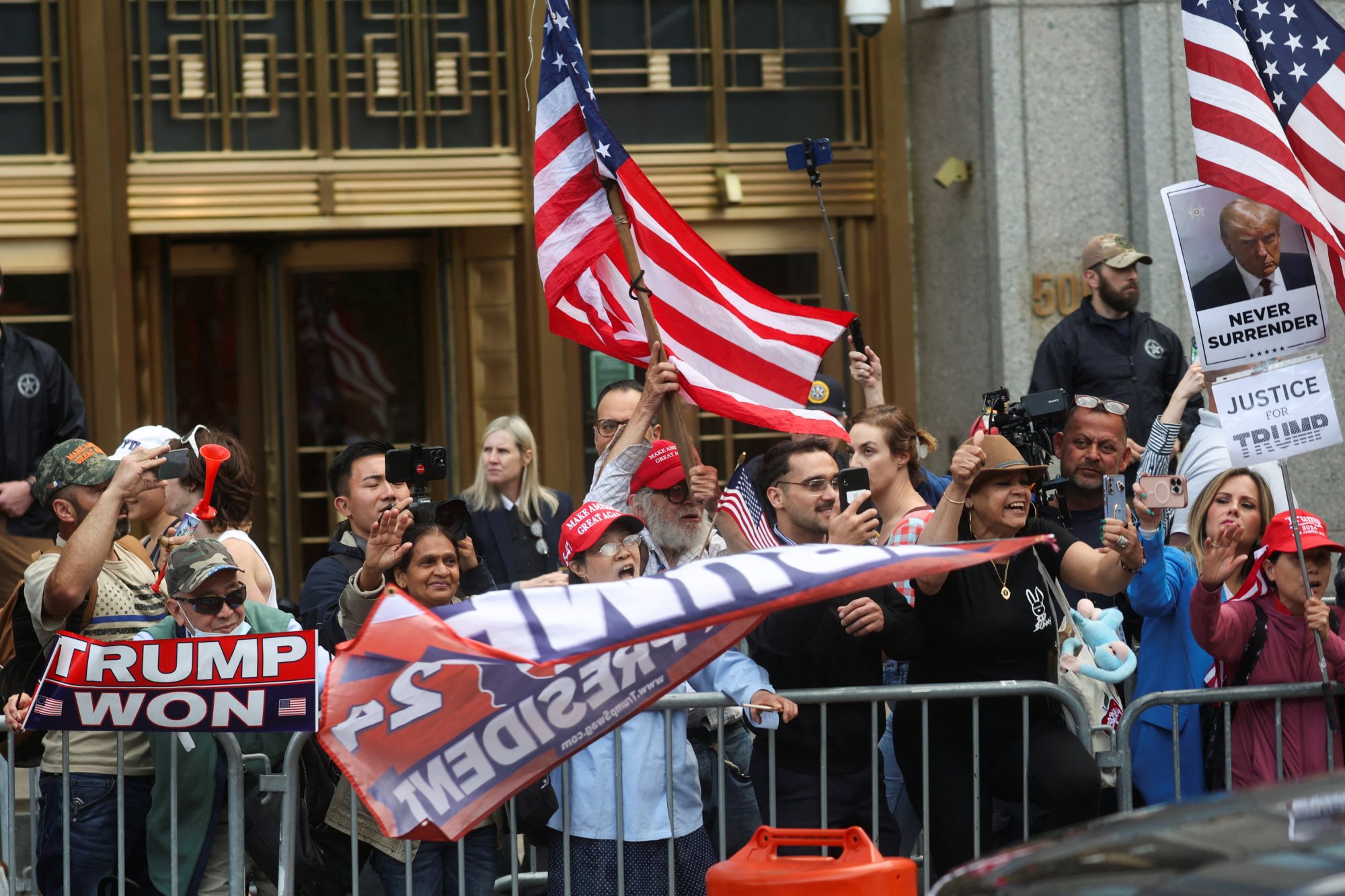
Former US President Donald Trump has been found guilty on all 34 counts of falsifying business records in his highly publicized hush money trial in New York. The trial, which concluded with a unanimous jury verdict, marks a historic moment as Trump becomes the first former president of the United States to be criminally convicted. The sentencing has been scheduled for July 11 by Judge Juan Merchan.
The case, prosecuted by the Manhattan district attorney's office, centered on allegations that Trump orchestrated a scheme to silence adult-film star Stormy Daniels with a $130,000 hush money payment during the final days of the 2016 presidential campaign. The prosecution argued that these payments were made to prevent Daniels from publicly discussing an alleged affair with Trump, thereby influencing the outcome of the election.

The charges involved Trump falsifying business records to conceal the true nature of the payments. Each falsified record count was elevated to a felony because the prosecution contended that they were part of a broader conspiracy to violate election laws. This legal strategy was controversial, hinging on the premise that the hush money constituted an illicit campaign contribution.
The high-stakes trial drew immense media attention and public interest, with supporters and detractors of Trump gathering outside the courthouse throughout the proceedings. Trump, who has consistently denied the affair with Daniels, did not testify in his own defense. Instead, his legal team argued that the case was politically motivated and that key witnesses, such as his former lawyer Michael Cohen, were unreliable.
Michael Cohen, once known as Trump’s "fixer," testified that he facilitated the payment to Daniels and was later reimbursed by Trump. The prosecution presented extensive documentation to support their case, showing a detailed paper trail of the transactions. Despite the defense’s efforts to discredit Cohen and other witnesses, the jury was persuaded by the evidence of Trump’s involvement.
The verdict is significant not only because of its historical nature but also because of its potential implications for Trump’s political future. The sentencing on July 11 comes just four days before the start of the Republican National Convention, where Trump is expected to secure the nomination for the 2024 presidential election. Despite the conviction, there is no constitutional barrier preventing Trump from running for office as a convicted felon.
In response to the verdict, Trump vehemently criticized the trial, calling it "a disgrace" and claiming it was rigged by a corrupt and conflicted judge. Outside the courtroom, he told reporters, "The real verdict is going to be November 5 by the people, and they know what happened here. We didn’t do a thing wrong. This was done by the Biden administration in order to wound or hurt a political opponent."
The trial’s conclusion allows Trump to resume a more vigorous campaign schedule, which had been constrained by the court proceedings. However, his legal challenges are far from over. Trump faces three other criminal cases, including federal charges related to his handling of classified documents and his efforts to overturn the 2020 election results. Additionally, there is an ongoing investigation in Georgia concerning alleged election interference.
The other cases, though potentially more severe, are unlikely to reach trial before the November election. Legal analysts note that while the New York case may be viewed as the least severe, it sets a precedent that no one, not even a former president, is above the law.

Within minutes of the verdict, President Joe Biden’s re-election campaign issued a statement referring to Trump as a “convicted felon” and emphasizing that the decision underscores the principle that “no one is above the law.” The campaign’s communications director, Michael Tyler, stated, "There is still only one way to keep Donald Trump out of the Oval Office: at the ballot box."
The political ramifications of Trump’s conviction are profound, adding another layer of complexity to an already contentious election season. As Trump continues to position himself as a victim of a political witch hunt, the American electorate will ultimately decide whether his legal troubles will hinder or galvanize his bid for a return to the presidency.











